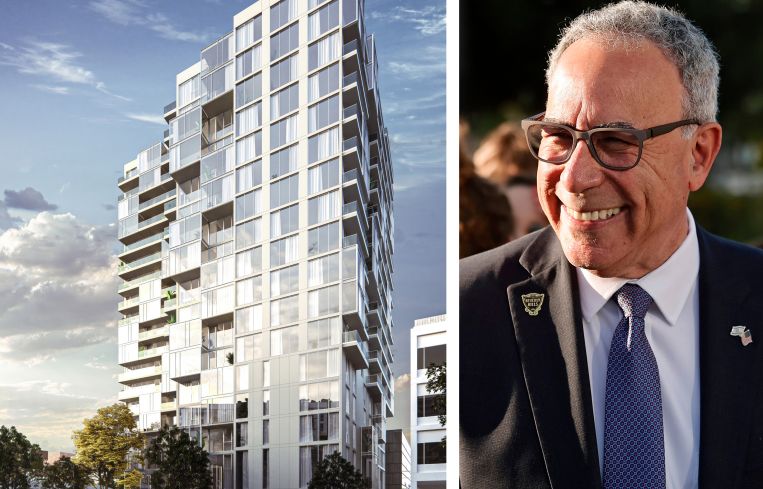Beverly Hills Rejects Leo Pustilnikov’s 19-Story Project Appeal
City Council’s unanimous decision effectively rebukes California’s controversial ‘Builder’s Remedy’ housing rule.
By Nick Trombola July 3, 2024 2:16 pm
reprints
A Los Angeles developer’s plans to duck Beverly Hills’ zoning restrictions and build a 19-story apartment tower hit a major snag late last week, after the City Council effectively voted to reject the project.
The famed enclave’s City Council unanimously voted at its June 27 meeting to deny an appeal from Leo Pustilnikov challenging the council’s previous ruling that his plan for the tower at 125-129 South Linden Drive was incomplete. In addition to the fate of that particular proposal, the council’s vote is essentially a repudiation of California’s controversial Builder’s Remedy rule, which Pustilnikov and other developers are attempting to use to construct larger developments that are out of scope with local ordinances and would become the tallest structures in certain cities
“The city believes that the application associated with the development, located at 125-129 South Linden Drive, was and is incomplete,” Larry Weiner, Beverly Hills’ legal counsel, told Commercial Observer via email. “The plaintiff is asking that this conclusion be reviewed in court, and so it will.”
Builder’s Remedy is a provision in California state law that allows developers and investors to leapfrog building restrictions if the city is out of compliance with state housing production requirements and the proposed development includes a percentage of affordable housing units.
The rule is part of the state’s 1990s-era Housing Accountability Act, which intended to boost the amount of affordable housing built in suburban communities, though has been largely ignored in the decades since.
That is, until 2022, when Pustilnikov and other investors began using the rule as license to propose projects in cities like Beverly Hills and Santa Monica that likely would have otherwise been rejected due to their size and density.
Take the South Linden Drive project. At 200 feet tall, with 165 units (20 percent of which would be designated as affordable) and a 73-room hotel, the development would automatically become one of the tallest in Beverly Hills. Or there’s Max Netty’s Soundview Investment Partners, which wants to build a 17-story, mixed-use project along Beverly Hills’ infamous Rodeo Drive using the same housing justification.
The California Department of Housing and Community Development has since approved Beverly Hills’ 2021-2029 housing plan (after three years of rejections), but because Pustilnikov filed his initial application before that approval, proponents argue that the city is required to consider the proposal. Dozens of other cities in California, such as Malibu, are still out of compliance with state laws mandating more housing.
Pustilnikov and his attorney, Dave Rand, did not immediately respond to requests for comment.
“I understand why the state law was passed to put pressure on cities to update and get approval of their housing plans, but the Builder’s Remedy is in my opinion too broad a hammer on local communities,” Paul Rutter, an attorney for Cozen O’Connor specializing in real estate development, told CO. “There will be a lot of litigation against Beverly Hills over their rejection of the developer’s appeal by housing advocates and perhaps the state.”
Indeed, the city is already facing at least one new lawsuit over its rejection of Pustilnikov’s appeal.
Californians for Homeownership, a nonprofit housing advocacy group sponsored by the California Association of Realtors (CAR), announced Monday that it sued the city over its decision, arguing that the city’s justification of procedural incompleteness was a “disguise” for allowing it to reject certain housing proposals.
The lawsuit is Californians for Homeownership’s first that explicitly cites the Builder’s Remedy rule, according to the organization. Through it, the group is seeking a court order that would give wholesale approval to the Linden Drive project.
“It is critical that cities like Beverly Hills do their part in addressing the state’s housing crisis, and this new case will help ensure that they do,” CAR President Melanie Barker said in a statement.
Nick Trombola can be reached at ntrombola@commercialobserver.com.



